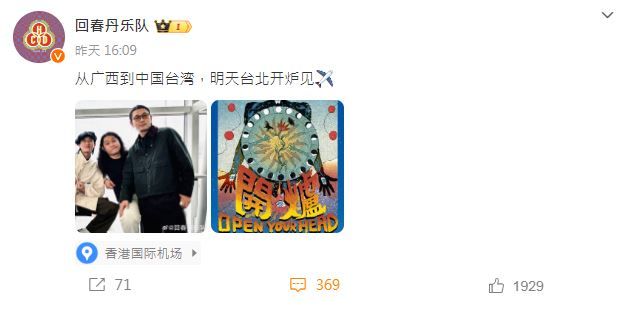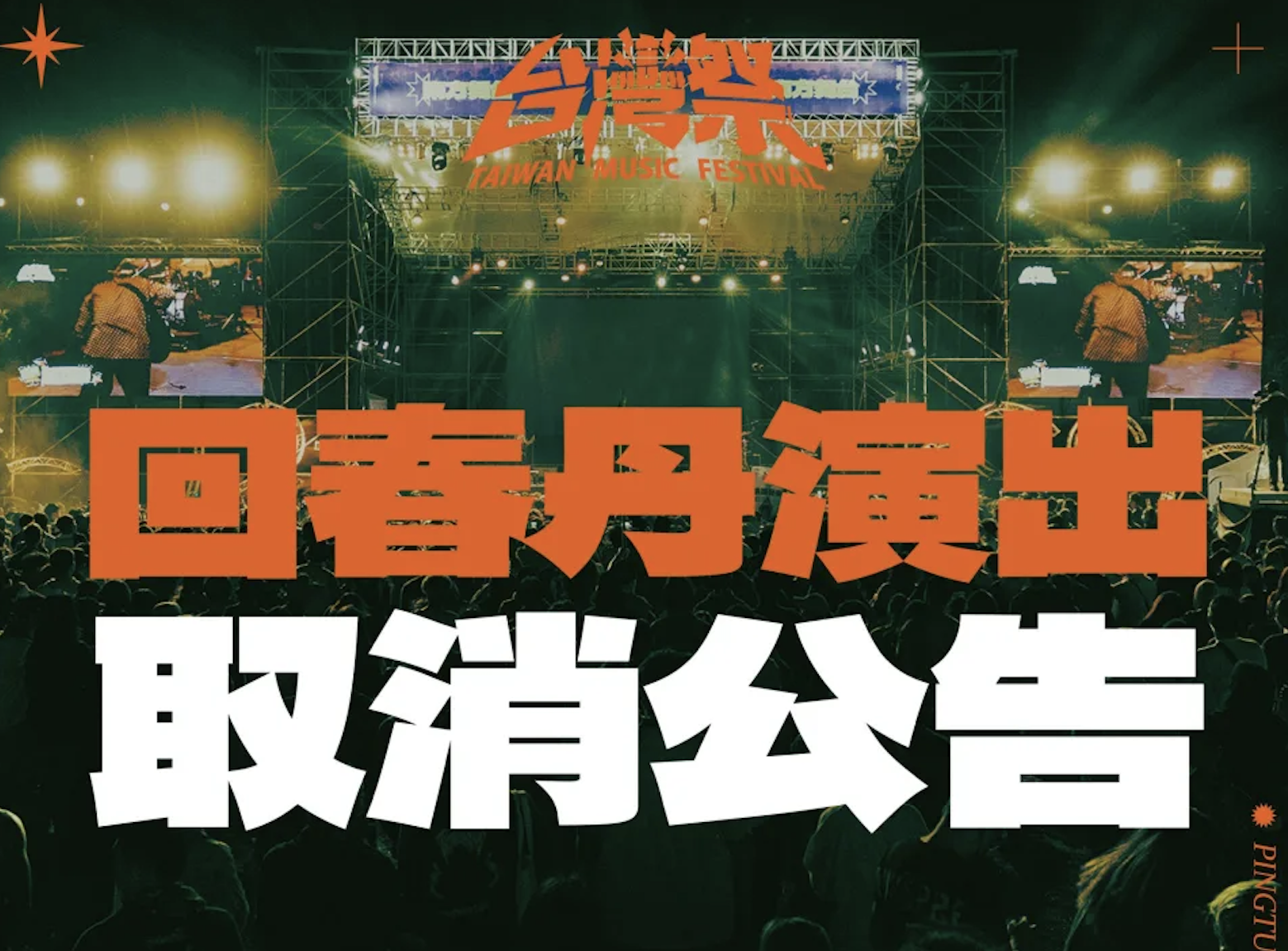by Brian Hioe
語言:
English
Photo credit: Screenshot
CHINESE INDIE BAND YOUNG DAN (回春丹) stoked outrage after a social media post on Monday that referred to Taiwan as part of China. The offending text in the post read, “From Guangxi to Taiwan, China.”
Reactions were immediate, with significant outrage online. The Taiwan Music Festival announced that it would be canceling YOUNG DAN’s performance originally scheduled for April 6th in light of the outpouring of anger. Many reactions on social media from Taiwanese indie artists were in support of the move by the Taiwan Music Festival.
Likewise, a performance yesterday by YOUNG DAN at concert venue Legacy in Taipei saw attendees raising banners supportive of Taiwanese independence or referring to Taiwan and China as separate countries. To this extent, some attendees brought Winnie the Pooh stuffed animals to the performances. Outside Legacy, Tibetan and Uyghur groups demonstrated the band. Reports indicate that attendees at the Taiwan Music Festival were originally stockpiling Taiwanese independence flags to raise during YOUNG DAN’s performance.
Taiwanese indie rock often leans in the direction of support for Taiwanese independence. As such, the reaction is not particularly surprising. One notes that there is usually no opposition toward Chinese bands performing in Taiwan, as observed in the popularity of Chinese bands such as Wu Tiao Ren or Omnipotent Youth Society in Taiwan, or that YOUNG DAN was invited to perform at the Taiwan Music Festiva, to begin with. There is not any opposition toward Taiwanese indie bands for performing in China either.
Tibetan and Uyghur groups demonstrating outside Legacy in Taipei
The incident proves an odd reversal of a prior incident that occurred last August when Taiwanese indie band, The Shine&Shine&ShineShine, performed in China. When the band took to the stage, they announced that they were “Happy to tour China.” Because such comments referred to the PRC as “China” and not “mainland”—this was interpreted as viewing Taiwan as a different nation than China. As such, the next band, Curry 3000, refused to play, forcing the venue to refund the attendees of the concert.
There have been a number of incidents in which Taiwanese artists or attendees of performances by Taiwanese artists had to self-censor in the past. Indeed, the same summer as the incident with The Shine&Shine&ShineShine, Chinese attendees of an A-mei concert at the Cadillac Stadium in Beijing reported on social media that they were not allowed to wear clothing with rainbows on them at the concert. One participant reported coming under scrutiny for a shirt that changed colors under lighting, while another person reported being asked to wear a shirt with a rainbow on it inside out. Still another attendee reported being given black clothing to wear instead by security.
A similar incident occurred with a Jolin Tsai concert in Shanghai on July 29th last year. The song “Rose Boy,” inspired by the suicide of Yeh Yung-chih, was not performed during the concert. Yeh Yung-chih, a high schooler who was bullied for being “too feminine,” killed himself in April 2000. The song was dedicated to his memory, as a result of which it was seen as an anthem for the LGBTQIA community.

The post from YOUNG DAN that led to the wave of outrage
The two incidents were due to the popularity of Tsai and A-mei among members of the LGBTQ community, at a time of growing repression in China, and crackdowns on representations of “feminine men.”
Indeed, there are other incidents in which Taiwanese came under scrutiny for how they referred to China as well. In yet another incident that took place last August, Taiwan’s flag bearer for the FISU World University Games came under scrutiny because of a post on Instagram about “going abroad.” This was also interpreted by Chinese netizens as an expression of support for the view that Taiwan and China are separate entities. It is rarer for the opposite to occur, regarding how Chinese entertainers refer to Taiwan, however.



